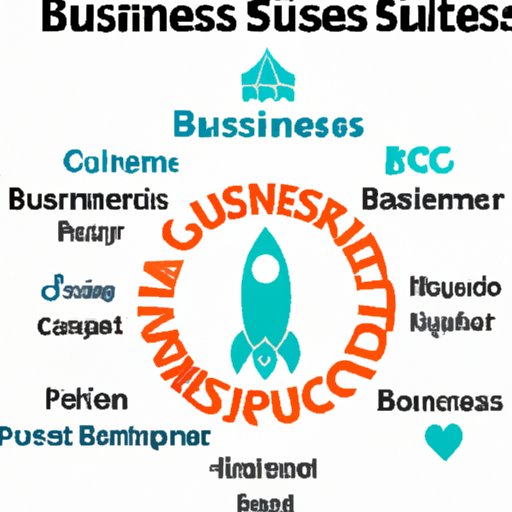Introduction
Business incubators are organizations that help new businesses grow by providing access to resources such as office space, mentorship, and funding. They offer an invaluable service for entrepreneurs who need guidance in launching their businesses. Starting a business incubator requires careful planning and dedication, but can be a rewarding endeavor for those up to the challenge.

Definition of a Business Incubator
A business incubator is an organization that provides support and resources to startup companies. These resources may include office space, mentorship, access to capital, and other tools needed to develop and launch a business. Incubators can be found in many sectors, including tech, healthcare, finance, and more.
Overview of Benefits
There are many benefits to starting a business incubator. According to a Global Entrepreneurship Monitor report, incubators can help entrepreneurs become more successful. The report states that “incubators have been associated with greater success in terms of survival rates and job creation than non-incubated firms.” In addition, incubators provide a valuable service to the community by helping to foster economic growth.
Identifying Your Target Market
The first step in starting a business incubator is to identify your target market. You should research the demographic in the area you plan to open the incubator, as well as the types of businesses that would benefit from the services you will provide. Understanding the needs of your potential clients is essential for creating a successful incubator.
Researching Your Demographic
It is important to research the demographic of the area where you plan to open your incubator. This includes gathering data on population size, age range, income level, education level, and other pertinent information. Knowing who you are targeting will help you create services that meet their needs.
Understanding Their Needs
Once you have identified your target demographic, you must understand their needs. What do they need to start and grow their businesses? What services or resources would be beneficial for them? Creating a list of services that address these needs will help you attract the right clients.

Developing and Defining Your Services
Creating a list of services is an important step in starting a business incubator. These services should be tailored to the needs of your target clients. Examples of services you may provide include office space, mentorship, access to capital, and other resources.

Creating a List of Services
When creating your list of services, it is important to consider the needs of your target market. Think about what resources and support they need to launch and grow their businesses. Once you have a list of services, you should define each one in detail and set prices accordingly.
Setting Prices
Setting prices for your services is a crucial step in starting a business incubator. You should research the market to determine what other incubators in the area are charging for similar services. You should also consider the cost of providing the services and factor that into your pricing structure.
Establishing Your Financial Plan
Creating a financial plan is essential for starting a business incubator. You should estimate your costs, such as rent, utilities, and staff salaries, as well as your revenue sources, such as fees for services and grants. Having a clear financial plan in place will help ensure your incubator is sustainable.
Determining Costs
Before starting a business incubator, it is important to determine your costs. This includes rent, utilities, staffing costs, and any other expenses related to running the incubator. Knowing your costs will help you create a realistic financial plan.
Estimating Revenue
You should also estimate your revenue sources when creating a financial plan. This includes fees for services, grants, and other sources of income. Having a clear understanding of your revenue streams will help you maintain a sustainable business model.
Creating and Promoting Your Brand
Creating a strong brand is essential for any business, and a business incubator is no exception. Developing a logo, website, and other branding materials will help you promote your incubator and attract the right clients.
Designing Logos and Branding Materials
Creating logos and other branding materials is an important step in building a successful business incubator. It is important to choose colors, fonts, and images that represent your brand and appeal to your target demographic. Having professional-looking branding materials will help you stand out from the competition.
Developing an Online Presence
In today’s digital world, having an online presence is essential for any business. You should create a website and social media accounts to promote your incubator and reach potential clients. You should also engage with your audience on these platforms to build relationships and attract more clients.
Conclusion
Starting a business incubator can be a rewarding endeavor for those up to the challenge. By researching your target market, developing services, creating a financial plan, and establishing a strong brand, you can create a successful incubator that helps entrepreneurs launch and grow their businesses. With dedication and hard work, you can create a business incubator that provides invaluable services to the community.
(Note: Is this article not meeting your expectations? Do you have knowledge or insights to share? Unlock new opportunities and expand your reach by joining our authors team. Click Registration to join us and share your expertise with our readers.)
